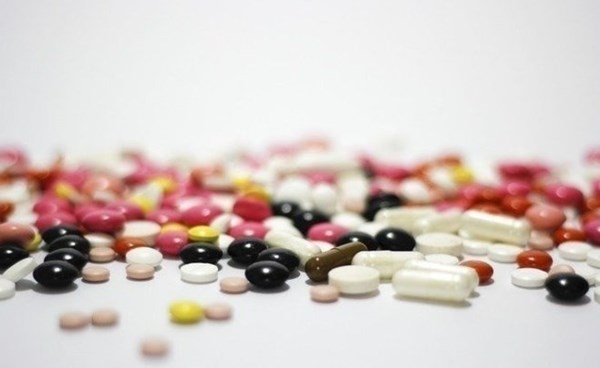Russian pharmaceutical companies told to prepare for war
The Russian Ministry of Industry and Trade has prepared a strategy to develop the country’s pharmaceutical industry by 2030.
The relevant strategy document, compiled in 2018, highlights the need to guarantee the country’s medicine security in connection with the threat of “military conflicts of varying intensity”.
In order to do so, the country must establish a stockpile of domestically produced medicine “depending on the predicted severity and scale of losses”.
“It is important to determine the medical technologies used primarily in wartime to provide medical assistance, to treat the wounded and those affected by ionizing radiation or military-grade toxic substances,” the document states.
If war breaks out, antimicrobial agents will be needed for systematic use, as well as analgesics, neuroleptics, plasma replacement and aseptic solutions and, if weapons of mass destruction are used, radioprotectors and antidotes, the authors note.
The entire minimal assortment of medicines must be produced within Russia, including the substances used to produce them, the ministry insists. In 2018, domestically produced medicines accounted for only 30.6% of the market in Russia in monetary terms. In terms of physical volume, Russian-made pharmaceuticals accounted for more than twice as much – 63.7% of the market.
The strategic document also highlights the need to improve the population’s confidence in Russian medicines through “educational work”.
The document envisages two scenarios – an inertial one and a purposeful one. In the first scenario, it says that the primary task of regulators (The Ministry of Industry and Trade, the Federal Anti-Monopoly Service, The Ministry of Healthcare and the Federal Service for Supervision of Healthcare) is “to guarantee the minimal assortment of medicines and medical products” for the country’s medicine security in the event of political conflicts and sanctions.
In the second scenario, the state’s priority would be to help domestic producers to become more competitive on the world pharmaceuticals market. The authors propose both financial and non-financial assistance, including proper market regulation and support for local full-cycle producers.
Russian President Vladimir Putin said in November 2017 that even industries unrelated to defense need to be ready if the country transitions to a war economy.
“The economy’s ability to rapidly increase the volumes of defense products and services at the right time is one of the most important conditions for ensuring the country’s military security,” he stressed. In order to guarantee this, he warned that not only the strategic factories, but “all major enterprises, regardless of the form of ownership” must be prepared.
